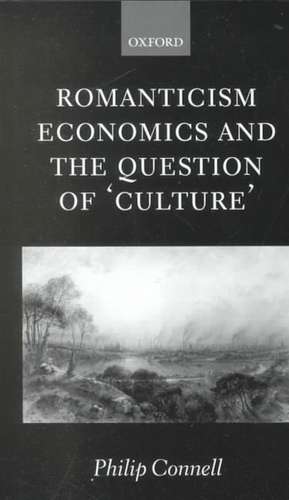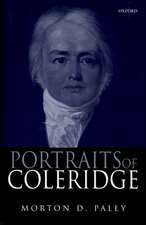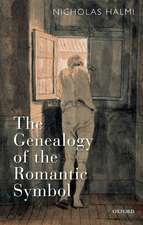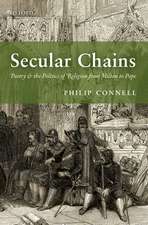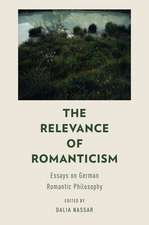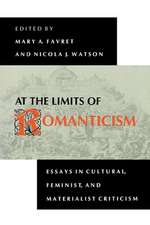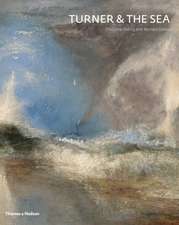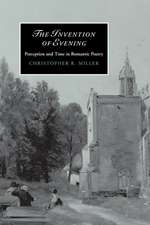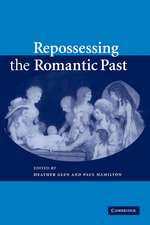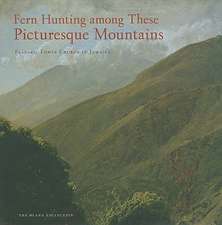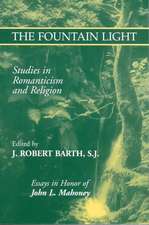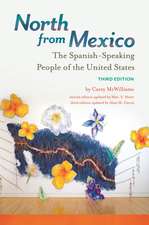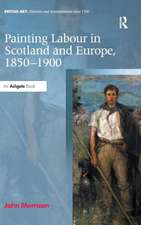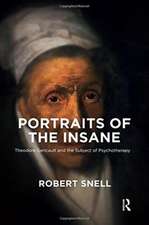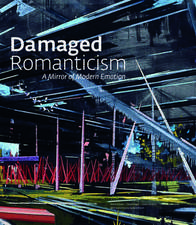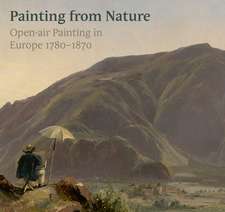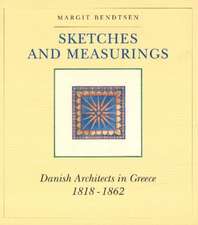Romanticism, Economics and the Question of 'Culture'
Autor Philip Connellen Limba Engleză Hardback – 8 mar 2001
| Toate formatele și edițiile | Preț | Express |
|---|---|---|
| Paperback (1) | 393.80 lei 31-37 zile | |
| OUP OXFORD – 10 mar 2005 | 393.80 lei 31-37 zile | |
| Hardback (1) | 978.69 lei 31-37 zile | |
| OUP OXFORD – 8 mar 2001 | 978.69 lei 31-37 zile |
Preț: 978.69 lei
Preț vechi: 1487.56 lei
-34% Nou
Puncte Express: 1468
Preț estimativ în valută:
187.27€ • 196.02$ • 155.87£
187.27€ • 196.02$ • 155.87£
Carte tipărită la comandă
Livrare economică 20-26 martie
Preluare comenzi: 021 569.72.76
Specificații
ISBN-13: 9780198185055
ISBN-10: 0198185057
Pagini: 354
Dimensiuni: 145 x 224 x 24 mm
Greutate: 0.54 kg
Editura: OUP OXFORD
Colecția OUP Oxford
Locul publicării:Oxford, United Kingdom
ISBN-10: 0198185057
Pagini: 354
Dimensiuni: 145 x 224 x 24 mm
Greutate: 0.54 kg
Editura: OUP OXFORD
Colecția OUP Oxford
Locul publicării:Oxford, United Kingdom
Recenzii
[Connell's] book is persuasive because it is thick with evidence and always interested in exploring the large implications of the subtle shades of opinion he finds in the printed discussions of the era ... The persuasivenss of his work results from his Lovejoy-ish skepticism as well as his empirical and textual methodology, which anticipates counter-arguments. Romanticism becomes in the course of the investigation a shaky series of interlocking texts and oppositions.
Connell's immensely learned and scholarly work has grave implications for any subsequent study of Romanticism. He is skeptical both of humanist idealizations of the subject and self-consciously radical readings of it; his writers moderate and change their opinions, always in the context of reading and discussion of the period, and Connell seems to have unearthed every possible work and author relating to political economy, popular education, and religious politics; the result is a rich, dense, and convincing study that deconstructs pieties of the scholarly left or right.
Fascinating and immensely learned ...omanticism, Economics and the Question of 'Culture' is an important book. It is virtually alone in surveying this crucial but neglected field ... will set the benchmark against which all future literary scholarship on this subject will be judged.
Marvellously rich and nuanced ... bound to be a standard reference for years to come. Connell starts so many highly suggestive arguments that it is hard to know in a review which to select.
Thoughtful and intricate study.
His book cannot be ignored by anyone addressing the tangled but stimulating question of the relationship between English literature and politics in the Romantic period.
The depth of the discussion of Wordsworth is characteristic of Connell's excellent book, which does not only examine the older generation of English Romantic poets; one of the most interesting chapters analyses the ambiguous relationship between the "Hunt school" of younger radical Romantic writers, including Keats and Shelley, and the utilitarianism of Jeremy Bentham and his followers.
Connell's immensely learned and scholarly work has grave implications for any subsequent study of Romanticism. He is skeptical both of humanist idealizations of the subject and self-consciously radical readings of it; his writers moderate and change their opinions, always in the context of reading and discussion of the period, and Connell seems to have unearthed every possible work and author relating to political economy, popular education, and religious politics; the result is a rich, dense, and convincing study that deconstructs pieties of the scholarly left or right.
Fascinating and immensely learned ...omanticism, Economics and the Question of 'Culture' is an important book. It is virtually alone in surveying this crucial but neglected field ... will set the benchmark against which all future literary scholarship on this subject will be judged.
Marvellously rich and nuanced ... bound to be a standard reference for years to come. Connell starts so many highly suggestive arguments that it is hard to know in a review which to select.
Thoughtful and intricate study.
His book cannot be ignored by anyone addressing the tangled but stimulating question of the relationship between English literature and politics in the Romantic period.
The depth of the discussion of Wordsworth is characteristic of Connell's excellent book, which does not only examine the older generation of English Romantic poets; one of the most interesting chapters analyses the ambiguous relationship between the "Hunt school" of younger radical Romantic writers, including Keats and Shelley, and the utilitarianism of Jeremy Bentham and his followers.
Notă biografică
Philip Connell is College Lecturer and Director of Studies, Selwyn College, Cambridge
